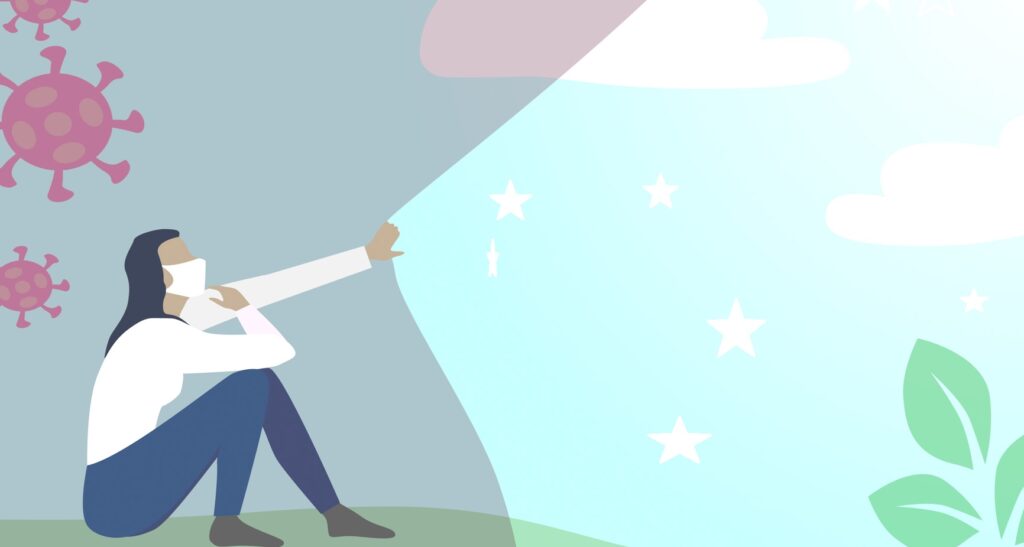The first year of the new decade has arrived with sobering events that has made the whole world sit up and take cognizance.
With the colossal adverse effects this is having on the world’s economic health, it would be worthwhile to intuit a perspective on the shape of things to come, sooner than later. In the absence of real time global economic data, past data on global redefining moments that required ‘rebuilding’ society almost ground up, is referred (World Wars, pandemics, natural calamities etc). The basis of the piece is the current world wide stock market results of the past two months as proxy for guesstimating the extent of real economic losses. I admit at the outset that that the stock markets have limitations of rationality and hence its use, may be circumspect. Therefore, I prefer this article to be considered as crystal ball gazing.
Strategic leaders, institutional, organisational, community, right down to households and individuals (as the smallest affected units), are grappling with the enormity of all this and the wherewithal of dealing with the situation is no doubt top of mind. The reconstruction of business, portfolios, markets and entire economies, will need radical rethinking and reframing.
I therefore propose shifting focus from the prevailing conundrum in favour of wearing our thinking caps for the ‘rebuilding’ efforts. This rebuilding would encompass everything around us, including our personal and collective existence. Following are the salient sectors that could witness disruptive changes in the aftermath of COVID-19 and are significant economic multipliers.
Manufacturing and Agriculture: Firstly, global supply chains will undergo significant overhaul. Worldwide supply chains from the smallest of items like chicken, tissue paper, pins and needles, right up to the futuristic front -loaded capital investment projects, have been severely affected. For some time now, a significant number of people are now inclined towards healthy, organically grown food. I foresee this growing ‘farm to fork’ preference would necessitate rapid adoption of shorter and localised delivery chains (urban farming, organic farming). This would also mean lowered consumption of processed meat and foodstuffs, in favour of farm fresh ingredients and free-range meats. Restaurants and hotel chains will likely alter menus to accommodate local food replacing the likes of caviar and civet coffee which have a complex supply chain. Hedonic consumption of goods may reduce not only due to household financial distress in the short to medium term, but also due to a heightened sense of risk regarding the source, or a greater emphasis on frugality and simple living by the households, or then embargos by the authorities.
Labour: Secondly, mobility of global labour will witness altered contract arrangements. Country of origin data and medical history of labour will introduce whole new vigilance protocols. Data of this kind may not be shared easily by host countries at the same time in home countries it could give rise to Orwellian fears among people. As a consequence, countries with large home populations and high expatriate labour, would need to speed up local employment opportunities in order to avoid potential social agitations.
Cities: Thirdly, cities will need to ‘de-densify’ on a war footing to curtail urban sprawls, such as in India. More cities will need to be built faster, ground up. Lockdowns don’t help the cause, if cities have to retain their economic, social and functional utility. Otherwise too, metropolitan cities are high risk and vulnerable from every perspective- economic, medical, or defence. Being engines of growth, governments can ill afford lockdowns losses.
Education, Retail, Entertainment: Fourthly, I envisage, manifold growth of online modes in education, retail, and entertainment. Virtual classrooms, online shopping and rise of live stream entertainment will grow exponentially. To my mind, this mode has come to stay, and will see a ubiquitous spread. Social distancing and isolation will no longer be taboo, it will simply take new forms, such as the greater use of virtual partying and socialising and diminished scale of gatherings. However, increased virtual and social surveillance would also increase.
Travel and Leisure: Fifthly, I do not envisage a complete doomsday in the travel and leisure industry in the medium and long term. Both will thrive once again with more convergence taking place between the two. Synergies between travel and leisure will be explored and experimented. There could be, growth of micro vacation destinations or the adoption of multi-modal travel synergies or perhaps the introduction of combined travel and leisure cards, as part of this synergy.
Human Spirit: None of us should underestimate the human spirit, it is indomitable. Hasn’t humankind bounced back from every calamity, every adversity, every so- called apocalypse… stronger than before? It is so only because of the ability of humans to adapt, adopt and advance.
However, unlike in the past, I am hoping that this time around countries come together, with open agendas, and are kinder and inclusive perspective towards all things living and natural, and pledge to unite in achieving a ‘New Normal’.

